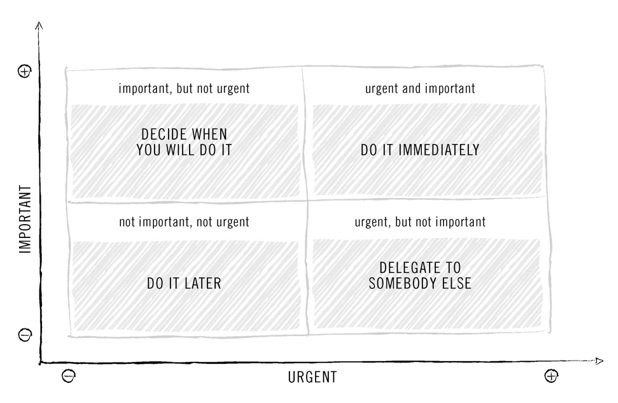Self Management – when your boss is away

"Regardless of whether you are working at a distance or not, the labour market today demands a much greater extent of Self Management than previously. People are required to be much more self-driven, regardless of whether you are working with Facility or Business Advisory.”
So says Lars Hartung Honoré, EGN Chair and owner of the business coaching company Human Upgrade – with more than 20 years of experience with Business Management.
“More and more members in my EGN groups report to managers in other countries. At the same time we see that many jobs are outsourced within, for example, marketing, which leaves you to manage projects and people who are normally not under your command – and maybe don’t even work at your office.”
"it is crucial to have a common understanding of the goals.
Clear goals are crucial
According to Lars, the most important task of Self Management is to set clear goals, ensuring that you are not working blind. You need to have a high degree of control over yourself and your goals.
”It is all about discipline, focus and a clear description of the goals - both in the overall strategy and in the Key Performance Indicators, the KPIs. There must be no room for doubt,” he explains, and points out many organisations make the mistake of relying on things being self-driven.
“If the KPIs and the strategy are blurred, then they will not perform. In a setting where the employee is supposed to manage the work by themself it is crucial to have a common understanding of the goals for both the teamwork and the tasks.”
No Self Management without Management
It is not possible to talk about Self Management without Management: one cannot exist without the other.
”When you, as a manager, recruit and develop employees, it is crucial to set clear goals in compliance with the expectations. If not, there is a significant risk that the employee will work on the wrong tasks or deal with too heavy a workload, which can cause problems such as stress, ” he says. Lars points to Eisenhower’s Matrix as a powerful tool for managing the employee’s time and work.

Eisenhower’s Matrix: a useful tool for managing employee time and work, says Lars Honoré
”Consider the urgency of the task and who it is urgent for. Question the importance of the task as well as the relevance for your strategic goals. If you spend a lot of time on work that isn’t urgent or important for the KPI’s, it will result in a feeling of pressure and lack of overview. In that case, it is crucial both as employee and boss to balance the workload in compliance with the goals and KPI’s.”
And Lars underlines the importance of this being a two-way practice:
”It is essential that the employee accepts the situation, instead of having the impression of a structure being forced down from the top. Otherwise it will cause distrust in the organisation. You have to ensure that the goals are comprehended and accepted.”
"You can’t have happy, motivated and self-driven employees, if there is no trust.
Turn up self-awareness and turn down the mail
This requires that you, as a leader, are self-aware to a large degree about how your behaviour affects the employees.
“Many leaders are not aware of the way they are perceived by the employees. You have to be self-aware and put an effort in trying to build the necessary trust,” he says.
“You can’t have happy, motivated and self-driven employees, if there is no trust. The manager has to trust the employees to do the job, just as the employees should be confident to be constructive and have expectations of their manager.”
Read: How to increase your self-awareness as team leader
Furthermore, employees should be confident in defining the information and resources they need to do the job.
“It will not work if the manager keeps enlarging the workload. When you are working alone and at a distance, you can easily become frustrated: how do you get the resources you need to handle the tasks that are continuously trickling in?”
Build the necessary trust
On the other hand, the manager can experience a feeling of losing control. As a result of this the, management can become both too controlling and unsuitable.
“Once again it is about self-awareness. How restrained am I by control? What kind of need does it involve? How do I let go of some of that control and find confidence in handing over responsibility to the employee?”
In the end it is all about effective collaboration at a distance and establishing an environment of trust in which both the boss and the employee can thrive.
“If you do not feel confident in your job, you will not thrive. Therefore, you need to have face-to-face dialogue with your team now and then – especially in the beginning. It is important to get to know each other and establish that essential trust and confidence.”



